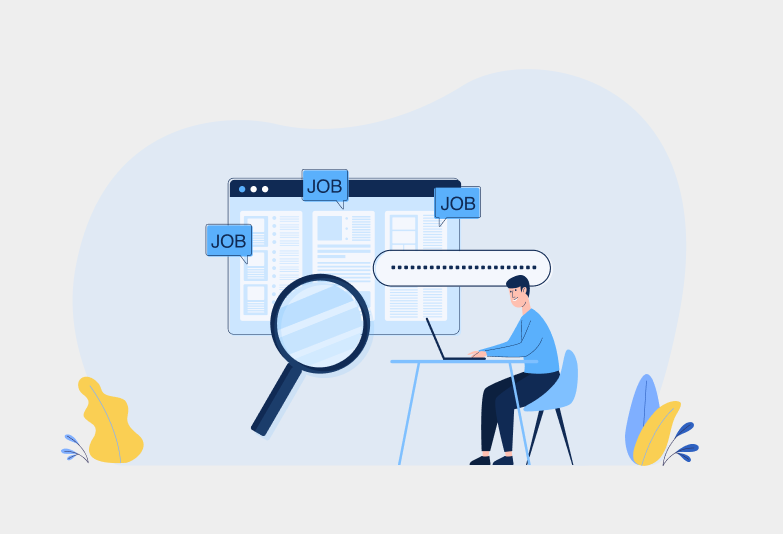An exit interview is a key element of the employee off-boarding process. An exit interview is a meeting with a terminating employee wherein an HR staff member talks to them about their experience of working at the organization. This is an opportunity to obtain frank and honest feedback for organizational development, improvement, and better employee retention from the outgoing employee.
Who Conducts Employee Exit interviews?
Usually, it is the responsibility of the HR team to conduct the exit interview. In some cases, it is the employee’s direct supervisor or the supervisor’s manager. Some organizations also opt for external consultants to conduct unbiased exit interviews.
Some of the best exit interview tips include pre-planning your exit interview questionnaire, taking inputs from the direct supervisor, and if possible, involving the direct supervisor for the exit interview.
Why Should You Conduct Exit interviews?
There are a lot of benefits of exit interviews. Well-planned exit interviews focus on the following goals:
- Finding areas of improvement for HR management
- Get a better understanding of the management styles in the workplace and how effective they are. This helps in establishing training & development requirements for managers.
- Understanding the employee’s perspective at the workplace
- Know more about what your competitors are offering to employees
- Find new ideas for organizational improvement
- Treating a departing employee with respect and gratitude helps create a lifelong alliance with them.
What Are The Best Exit Interview Questions?
Some of the best exit interview questions are:
Why Did You Start Looking For a New Job?
Understanding what sparked an employee’s intention for job change can give you an insight into the common reasons for employee turnover.
Why are you leaving your current job?
This is an important question to understand what your competitors may be offering to talented candidates vis-à-vis your compensation package and benefits.
Were your expectations for the job met?
This question addresses any expectation mismatch that the employee may have experienced after joining your organization. It can help you understand how to provide clarity of the information to new employees.
Anything We Can Do Better & What Can We Do to Keep You Here?
This question can help uncover some nuances of employee satisfaction. Such as the need for growth opportunities or problems with the work culture. The second part of the question is a prompt to elicit frank and direct answers about what employees expect.
Were You Comfortable Talking To Your Manager?
Talking about the employee’s relationship with the manager can help you understand what areas of improvement are needed in your organization’s management style.
How Could Your Manager Do A Better Job?
This is a question aimed at understanding the ground level work culture in your organization. It can give you ideas for the performance and development of managerial employees.
Did You Discuss Your Concerns With Anyone At The Company?
This can help you understand if there is a culture of open and honest discussion among employees, supervisors, and managers. If an employee is unable to discuss their concerns at the workplace, it may be an important cultural issue to address.
Did You Receive the Tools & Training You Needed To Succeed At Your Job?
This question can help you find out the gaps in your training and development programs. It can also give an insight into your work environment and how it can be improved.
What Can We Do to Improve Our Training & Development Initiatives?
A departing employee can offer valuable input on the kind of knowledge someone needs to do the job. This will help you organize better and more relevant training & development efforts.
Were Your Goals And Objectives Communicated?
If the answer is yes, it means that your goal setting process is serving the purpose. If not, then find out how you can improve it.
Did You Receive Regular Feedback for Improvement?
Constructive employee feedback is an important source of motivation and improvement for every employee. In an exit interview, you can find out if feedback and guidance are being given to the employees.
Is There Anything You Would Like to Change About Your Job?
It’s important to understand whether or not the position itself is the cause of the employee leaving the job. This would mean that anyone hired in the position would be dissatisfied.
What Was The Best Part Of Your Job?
This question helps you determine the good aspects of the job. Use this information to promote the position in the job market.
What Was The Worst Part Of Your Job?
Just as the previous question, this question helps in understanding the bad aspects of the job, to help you focus on solutions.
Do You Have Something to Discuss or Comment on Before You Leave?
Ask this open-ended question to allow the exiting employee to bring up topics they want to talk about. It may give you an insight into issues that you never knew about.
What Do You Think of Our Company Culture?
Get an idea about the perception of the company culture that your employees hold by asking this question. Even though you may receive some nasty answers, you will be able to identify an overall trend with the common answers.
How Would You Improve Employee Morale?
Just hours ago, this employee was in the thick of things. He was dealing with company culture and being influenced by others’ morale first-hand. Living through that on a day-to-day basis gives him unique insight into how that morale and culture can be improved. This is the time to find out what he thinks.
What Would You Change About Your Job?
This is a non-confrontational approach for encouraging the employee to talk about the real reason why they are leaving their job. This is an indirect question that does not ask what employees dislike, but what they want to change.
Could You Give Some Examples Where We Could Have Done Better As Employers?
Ask this as a follow-up question when you find answers to be vague or generic. This could be related to management, training needs, or work culture. Specific incidents can also help you grasp the sentiment of the exiting employee better.
Has Your Job Description Changed Since You Began Working With Us? How?
Jobs in the corporate world are in a constant state of evolution and development. Often, the changes in roles and responsibilities may not match an employee’s expectation and could prompt them to leave. Talk to them about this in this question.
Can You Describe the Ideal Qualities of a Candidate We Should Look For As Your Replacement?
A person who has worked in a particular position for some time can accurately describe the knowledge and capabilities needed to do that job properly. Take these inputs during the exit interview or before, if possible to aid your hiring process.
Would You Consider Rejoining This Company?
The answers you get to this question can prove useful for employee retention. If an employee answers ‘No.’ don’t be shy to ask how you can change their mind.
How Likely Are You to Recommend Our Company To A Friend Looking For A Job?
This question can help you to understand what impression the employee has about your company as a workplace. If the answer is no, probe more to find out what you can do to improve this.



